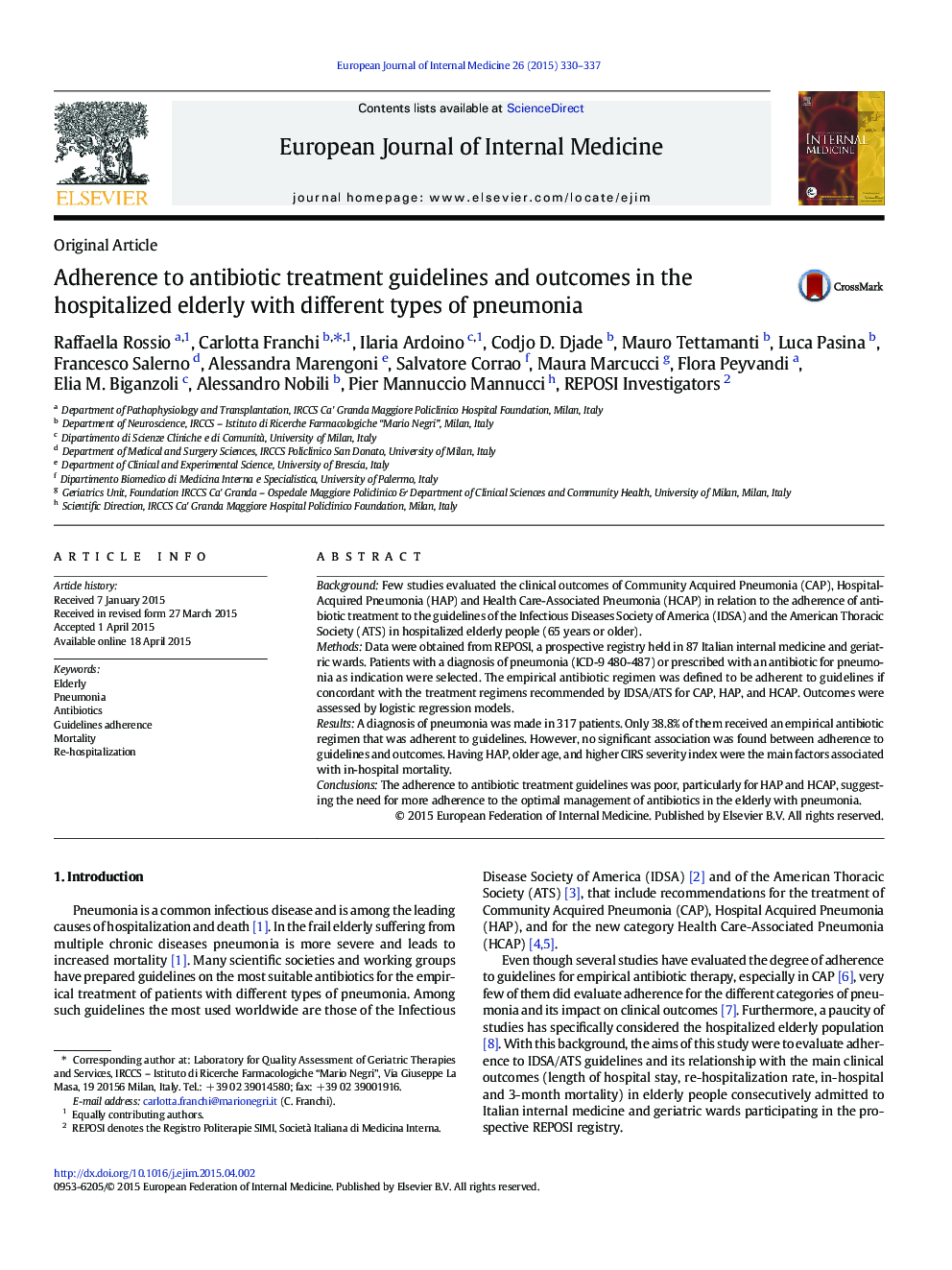| Article ID | Journal | Published Year | Pages | File Type |
|---|---|---|---|---|
| 3466121 | European Journal of Internal Medicine | 2015 | 8 Pages |
•The adherence to these antibiotic treatment guidelines was poor, particularly for HAP and HCAP.•However adherence to guidelines did not significantly improve outcomes.•Having HAP, older age, and higher CIRS severity index were the main factors associated with in-hospital mortality.
BackgroundFew studies evaluated the clinical outcomes of Community Acquired Pneumonia (CAP), Hospital-Acquired Pneumonia (HAP) and Health Care-Associated Pneumonia (HCAP) in relation to the adherence of antibiotic treatment to the guidelines of the Infectious Diseases Society of America (IDSA) and the American Thoracic Society (ATS) in hospitalized elderly people (65 years or older).MethodsData were obtained from REPOSI, a prospective registry held in 87 Italian internal medicine and geriatric wards. Patients with a diagnosis of pneumonia (ICD-9 480-487) or prescribed with an antibiotic for pneumonia as indication were selected. The empirical antibiotic regimen was defined to be adherent to guidelines if concordant with the treatment regimens recommended by IDSA/ATS for CAP, HAP, and HCAP. Outcomes were assessed by logistic regression models.ResultsA diagnosis of pneumonia was made in 317 patients. Only 38.8% of them received an empirical antibiotic regimen that was adherent to guidelines. However, no significant association was found between adherence to guidelines and outcomes. Having HAP, older age, and higher CIRS severity index were the main factors associated with in-hospital mortality.ConclusionsThe adherence to antibiotic treatment guidelines was poor, particularly for HAP and HCAP, suggesting the need for more adherence to the optimal management of antibiotics in the elderly with pneumonia.
